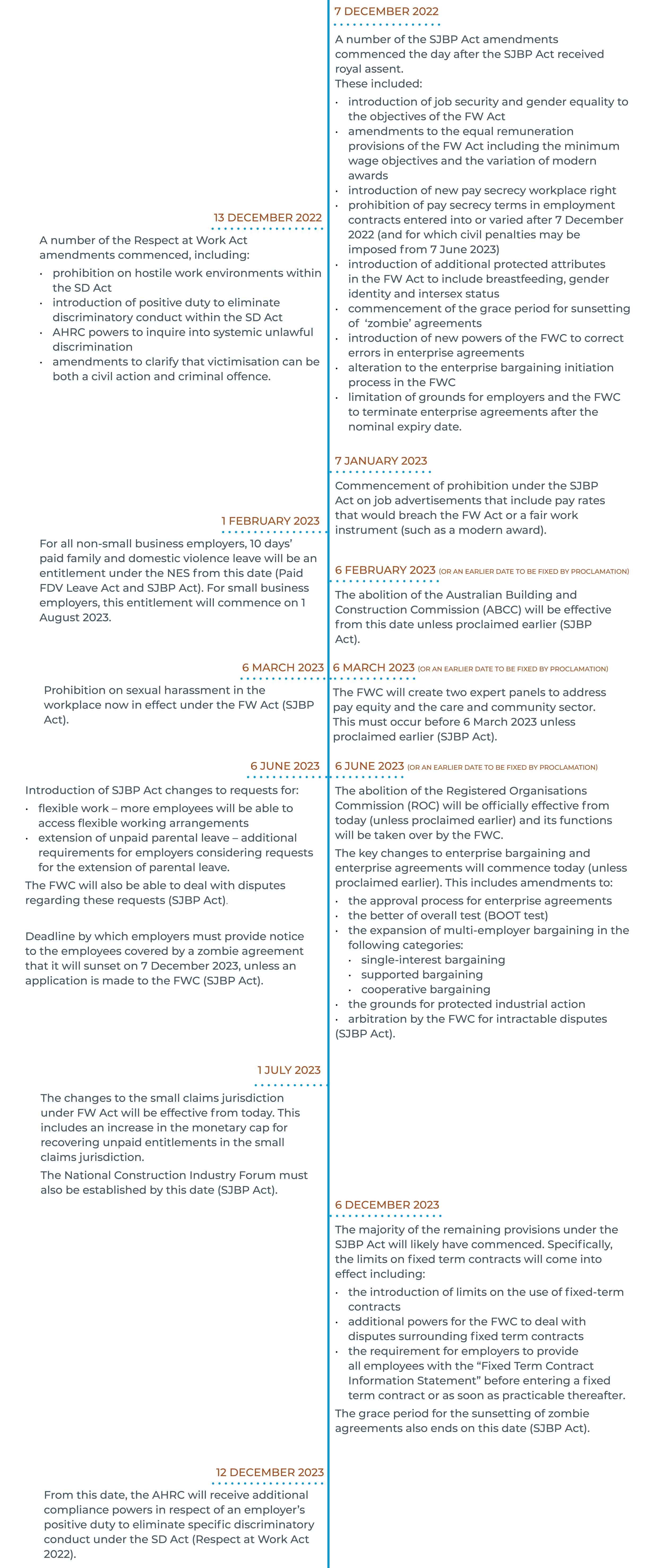23 January 2023
2 min read
Published by:

There is no doubt that late 2022 was a busy and interesting time for employment, human resources and industrial relations practitioners.
In November and December 2022, three key pieces of industrial relation’s legislation were enacted:
Collectively, the Acts introduced a wide range of amendments to the Fair Work Act 2009 (Cth) (FW Act) and the Sex Discrimination Act 1984 (Cth) (SD Act).
The commencement of each of the amendments will be staggered. Meaning, although parts of the legislative changes commenced the day after royal assent in 2022, other parts will come into effect at various times during 2023. As such, employers and human resources and industrial relations practitioners should remain alive to the changes occurring in 2023 and plan for their introduction.
This article provides an overview of the key commencement dates under the Acts for employers and human resources and industrial relations practitioners throughout 2023.
We encourage employers to refer to our series of articles for more information about the details and impact of the Acts (Part 1, Part 2, Part 3 and Respect at Work amendments).

As employers finalise their 2023 strategies, we recommend taking the time to:
If you have any questions about the upcoming changes in 2023, please contact us using the details below.
Disclaimer
The information in this article is of a general nature and is not intended to address the circumstances of any particular individual or entity. Although we endeavour to provide accurate and timely information, we do not guarantee that the information in this article is accurate at the date it is received or that it will continue to be accurate in the future.
Published by: